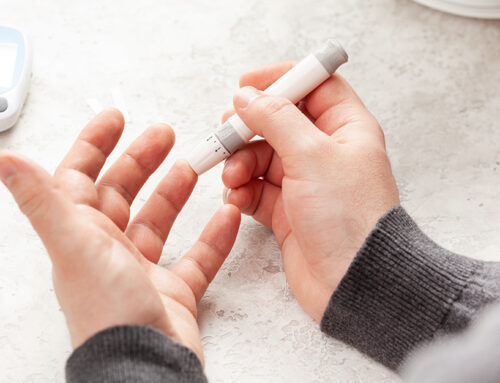Could Hashimoto’s flare-ups have started her down a path of psych meds and electroshock treatments?
“My patient Jeanette, 42, had been diagnosed seven years earlier by her family physician with bipolar disorder. She had manic episodes of staying up late at night, buzzing with energy and working on various projects, and shopping to excess, spending money she and her husband didn’t have. After these energy surges she then would crash and fall into fatigue and depression. A friend suggested she might have bipolar disorder and she brought this up with her family doctor, who prescribed her two psychiatric drugs and referred her to a psychiatrist. However her diagnosis was never re-evaluated and she eventually ended up on eight different medications, including lithium and drugs for depression, anxiety, panic attacks, and insomnia.
During her seven years of treatment she had also been hospitalized six times for complications due to her medications or for manic episodes. During the last hospitalization she had her gallbladder removed and was diagnosed with high blood sugar and Hashimoto’s, an autoimmune thyroid disease, and placed on thyroid hormone medication. Prior to seeing me she received twelve or thirteen electroconvulsive treatments under anesthesia during a six-month period, as prescribed by her psychiatrist.
Uncontrollable tremors and flat affect
When Jeanette came to my office her hands and legs shook uncontrollably, the result of a tremor that had developed recently. She also had a flat affect, meaning she showed no emotion and her overall mood was dull and low. She also said she struggled with extreme fatigue.
Given the precarious nature of her mental health and that fact that she had had so many hospitalizations, I thought it prudent to start very slowly with her case management.
Going gluten-free and dietary changes
Because of her Hashimoto’s diagnosis, the first thing I did was remove gluten from her diet. I also asked her to remove dairy and sugar and add in healthy fats, lots of vegetables, and to eat more frequently to keep her blood sugar stable. I supported her nutritionally with essential fatty acids (including emulsified fish oil), emulsified vitamin D, nutrients for insulin resistance (since her blood sugar was high her last time in the hospital), and gallbladder support to give her the digestive support she needed since her gallbladder had been removed.
Gut detox and adrenal support
Immediately she started to notice improvement in how she felt. After following the diet for several months, I put her on a gut detoxification program with a hypoallergenic detox protein powder. I started her on adrenal adaptogen herbs and nutrients as her salivary adrenal panel showed an increase in cortisol and night. This means she was more awake and night when she should be tired, which indicates a dysfunction in the brain’s sleep-wake cycle. Adrenal adaptogens address this.
Supporting serotonin
I also gave her nutritional compounds to support serotonin activity based on the results of a neurotransmitter assessment. [Note: Serotonin is a brain chemical responsible for feelings of joy and well being. Serotonin activity can become compromised in hypothyroidism.] She also continued to work on stabilizing her blood sugar with a lower-carb diet and by eating regularly to avoid drops in blood sugar.
Dramatic turn around and now med-free
After starting this protocol she felt so much better she decided to stop taking all of her medications, unbeknownst to me. But as it turns out her tremors disappeared completely and she now sleeps great. Whereas before she was emotionless and dull, she is now a bubbly, sweet, and energetic person. Since going off her meds, however, her TSH has slowly climbed and she will begin taking thyroid hormone medication. We will have her progress gingerly with the dosage so as to avoid over stimulating her metabolism.
She currently feels great. In fact, she says she feels “completely normal.” She and her husband rejoiced recently when she became angry and argued with him. For seven years she had been so emotionless she never even got angry, and the return of her anger was a sign of improving health.
We’re not out of the woods yet. Although I do wonder if her bipolar diagnosis wasn’t simply misdiagnosed Hashimoto’s, given how common that is, we remain vigilant of her symptoms and have a holistic psychiatrist on standby.
Nevertheless, I feel fortunate and grateful to have learned this information from Dr. Kharrazian, Otherwise there would be no help for people like Jeanette.”
Padeen Quinn, ND, Portland, Oregon
Why Hashimoto’s is mistaken for bipolar disorder
Could eight medications, six hospitalizations, and a dozen electroconvulsive treatments under anesthesia all have been the result of misdiagnosed Hashimoto’s? If so, how many other people are enduring the same kind of misguided treatment?
It’s possible her bipolar symptoms were symptoms of Hashimoto’s, and unfortunately such a mistake is common today given the medical misunderstanding of Hashimoto’s. When autoimmune Hashimoto’s flares up, the immune system attacks and destroys the thyroid gland. As the thyroid tissue is destroyed, it spills excess thyroid hormone into the bloodstream. This causes symptoms that can easily be confused with the manic episode of bipolar disorder, such as hyperactivity, irritability, and an inability to sleep.
When the immune attack dies down, more thyroid tissue is lost and the person returns to a hypothyroid state that frequently includes depression and fatigue, which can look like the depressive state of bipolar disorder. Also for someone who has gone a period of time without sleeping much and operating on overdrive, a crash it to be expected.
Studies on Hashimoto’s and bipolar disorder
Studies back up the connection between bipolar disorder and thyroid disorders.[1] A 2009 study showed a high rate of Hashimoto’s disease in those with bipolar disorder compared to the control group.[2] Additional studies have shown that outcomes in treatment for bipolar disorder are poor unless a thyroid condition is treated.[3] Bipolar is not only the mental disorder mixed up with Hashimoto’s. Research shows a significant correlation between the presence of thyroid antibodies used to identify Hashimoto’s and mood and anxiety disorders, including depression.[4] Subjects with Hashimoto’s disease show higher frequencies of lifetime depressive episode, generalized anxiety disorders and social phobias.[5] Complicating the issue is the fact that lithium, the drug used to treat bipolar, suppresses thyroid function.
Why serotonin support often helps in hypothyroidism
For Jeanette nutritional compounds to support serotonin activity also appear to have helped her greatly. Serotonin is an important brain chemical, or neurotransmitter, responsible for feelings of well-being and joy. This explains why poor serotonin activity is one of the most common culprits in depression. As it turns out hypothyroidism can decrease serotonin synthesis and the sensitivity of serotonin receptors,[6] giving one of the symptoms of serotonin deficiency.[7] This can manifest as depression, seasonal affective disorder (becoming depressed with lack of light), inner rage, paranoia, and a general loss of pleasure in life. Whenever I get a patient with high TSH and low T4, markers for hypothyroidism, I always assess whether poor serotonin activity is an issue.
Addressing poor serotonin activity is beyond the scope of this article, however it is a topic that will be included in my next book on brain chemistry. In the meantime, please work with your practitioner if you feel you suffer from poor serotonin activity.
After six months of support for Hashimoto’s, her symptoms resolved and she is now drug-free, with the exception of thyroid hormone medication. Was her bipolar disorder simply misdiagnosed Hashimoto’s?
Reprinted with permission from Datis Kharrazian, DHSc, DC, MNeuroSci from http://drknews.com





